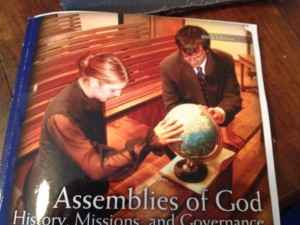I finished my 8th book for the #EmptyShelf challenge.


The Cross and the Switchblade by David Wilkerson
This book was a little different because I actually listened to the audio version. As I mentioned before, Christianaudio.com has a free monthly download. All you have to do is sign up for their email newsletter, and they will let you know what the free download of the month is. You go to the site, enter your email, and it downloads. You can’t beat free!
I’ve also shared that I don’t think absorb as much from audio books as I do from actual hold-in-your-hands books. But since I’ve read this book at least 5 times already (though probably not in about 5 years), I was very excited to listen to it.
The audio version did not disappoint.
If you’re not familiar with David Wilkerson, he traveled to New York City in the late 1950’s to minister to teens in gangs and with heroin addiction. He eventually began a ministry that is known as Teen Challenge today. This book is the story of that ministry’s beginnings. Teen Challenge is now one of the most successful drug rehabilitation programs worldwide.
The story is so compelling (even the 6th time around) that I limited myself to only listening to it while exercising. I found myself cheering, pumping my fists, crying and praying, even though I would be running or on the elliptical. I won’t give away the whole book, but I will share one story.
David Wilkerson comes from several generations of preachers. His grandfather was a preacher, and so was his father. One day, his grandfather said to David, “The day you learn to be publically specific in your prayer, that is the day you will discover power.” He learned the power of this truth one day when he was about 12.
He came home from school to find several cars and an ambulance at his house. He knew it was his father. His father had duodenal ulcers, and for more than ten years he was not free of pain. David’s mother warned him on this day that his father would likely die. Just then, his father cried out in pain. As his mother ran into the room, David saw that the floor and bedclothes were covered in blood.
I’ll let the book pick up there:
Ignoring my grandfather’s words, I ran just as far away from everyone as I could. I ran down the basement stairs, shut myself up in the coal bin, and there I prayed, trying to substitute volume of voice for the belief that I lacked.
What I didn’t realize was that I was praying into a kind of loud-speaker system.
Our house was heated by hot air, and the great trumpetlike pipes branched out from the furnace, beside the coal bin, into every room of the house. My voice was carried up those pipes so that the men from the church, sitting in the living room, suddenly heard a fervent voice pouring out of the walls. The doctor upstairs heard it. My father, lying on his deathbed heard it.
“Bring David here,” he whispered.
So I was brought upstairs past the staring eyes of the elders and into my father’s room. Dad asked Dr. Brown to wait in the hall for a moment, then he told Mother to read aloud the 22nd verse of the 21st chapter of Matthew…
“And all things whatsoever ye shall ask in prayer,” she read, “believing, ye shall receive.”
I felt a tremendous excitement. “Mother, can’t we take that for Dad now?”
So while my father lay limp on his bed, Mother began to read the same passage over and over again… And while she was reading I got up from my chair and walked over to Dad’s bed and laid my hands on his forehead.
“Jesus,” I prayed, “Jesus, I believe what You said. Make Daddy well!”
There was one more step. I walked to the door and opened and said, loud and clear: “Please come, Dr. Brown. I have…” (it was hard) “I have prayed believing that Daddy will get better.”
Dr. Brown looked down at my twelve-year old earnestness and smiled a warm and compassionate and totally unbelieving smile. But that smile turned first to puzzlement and then to astonishment as he bent to examine my father.
“Something has happened,” he said. His voice was so low I could hardly hear. Dr. Brown picked up his instruments with fingers that trembled, and tested Dad’s blood pressure. “Kenneth,” he said, raising Dad’s eyelids and then feeling his abdomen and then reading his blood pressure again. “Kenneth, how do you feel?”
“Like strength is flowing into me.”
“Kenneth,” said the doctor, “I have just witnessed a miracle.”
David Wilkerson went from being a “country preacher” from the hills of Pennsylvania to ministering through the power of the Holy Spirit to teens in New York City with strongholds he’d never even heard of. He was able to do this because God enabled him to.
If that doesn’t get you excited about what God is capable of, then you might not be alive!
Grab a copy of The Cross and the Switchblade. Your local library might have it. And prepare to be changed!
My books so far on the #EmptyShelf challenge:































